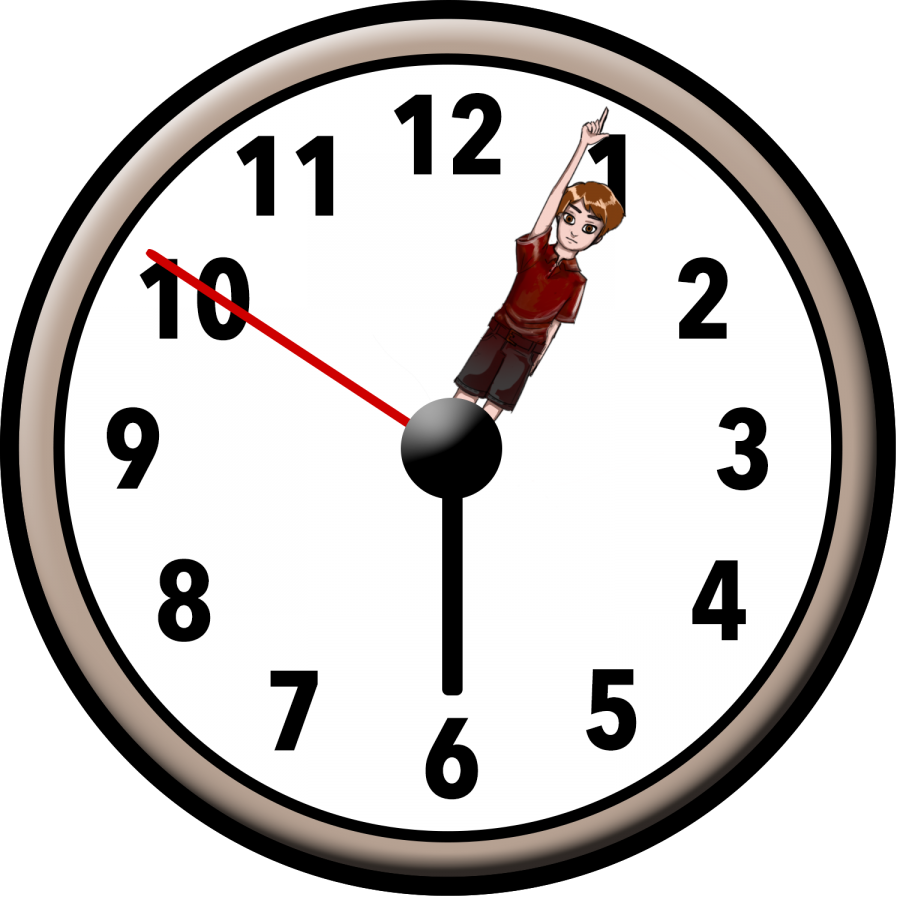Staying up late to read Murrin for an APUSH exam is something many of us can all relate to. But, the common conception of pulling “all-nighters” in order to yield better test results has been long disproved. While staying up late into the night accounts for more “learning” time, that productivity is forgone when we disrupt our circadian rhythms
The human body is ruled by circadian rhythms, the physical, mental and behavioral changes that follow a roughly 24-hour cycle. Also known as the “body clock,” circadian rhytms are found in most living things, including animals, plants and tiny microbes Circadian rhythms calibrate themselves based on sunlight, darkness, and periods of activity and rest, while they dictate the timing of crucial biological activities that maintain health.
Evolution has always capitalized on the day-night dichotomy. Scientists at the University of Washington found that the garden petunia releases its fragrance only at night to attract night pollinators. Close to home, the German Shepherd Ginger knows exactly when its time to go out for her daily walk, and it’s certainly not because she can read a clock.
Sadly, we humans have lost the art of listening to these signals. Conforming to the natural circadian rhythms has long been hijacked by the urge to function in today’s global economy. Each and every one of us has suffered some degree of circadian misalignment, as we navigate through our modern lives.
“There have been many instances where I sleep at different times, thereby leading to occasional headaches,” junior Varun Patel said.
Travel across time zones that results in jet lag, powerful digital devices that erase time differences and always keep us in the “ON” mode, video games with competitors in Beijing, late night snacking, etc. all result in disruptions to our circadian rhythms. Such disruptions lead to mild reactions including an upset stomach or an occasional headache to serious ailments such as heart disease, diabetes and cancer.
“Circadian rhythms are composed of two factors – genetics and the environment,” Science Department Chair Paula Phillips said. “The genetic component is overridden by interruptions in our daily schedules, thereby influencing our circadian rhythms very easily.”
This means that a busy life or stress for instance can interrupt a person’s ability to sleep even when his/her body craves rest.
The master clock in our brain is akin to the Greenwich Mean Time and every organ in our body takes cues from this master clock. The signals of the master clock coordinate the activities of other internal clocks and regulate the rise and fall of body temperature and blood pressure, hormone release, muscle repair and maintenance, sleeping pattern and much more. Therefore, obeying the body signals and conforming to the circadian rhythms is crucial. Staying up late to study for exams has become a part of student life, however this certainly impacts our sleep patterns, which in turn affects our performance. Sometimes, staying up very late could have the opposite effect than intended because our mental alertness is compromised.
The solution to circadian dysfunction is thankfully quite easy: repetition. Circadian rhythms are old fashioned and conservative. Rather than staying up late to “cram read” Murrin, following a strict schedule would prove much more beneficial in the long run. Adhering to a strict schedule enables the body to rest and work at regular times, thereby never ending up in an “all-nighter.” As soon as the body starts performing a function outside of its time zone, problems occur and health risks emerge.
The human race has biologically evolved on this planet to function on a 24-hour day. The sun and moon that shine on us today shone on our ancestors too. Although our modern lives make it possible to stretch the limits of these 24 hours, we should refrain from doing so by maintaining regular, daily routines. Rather than follow the point and click of today’s technology era, it is time we reunite our tick-tock to the original pulse of our planet.



